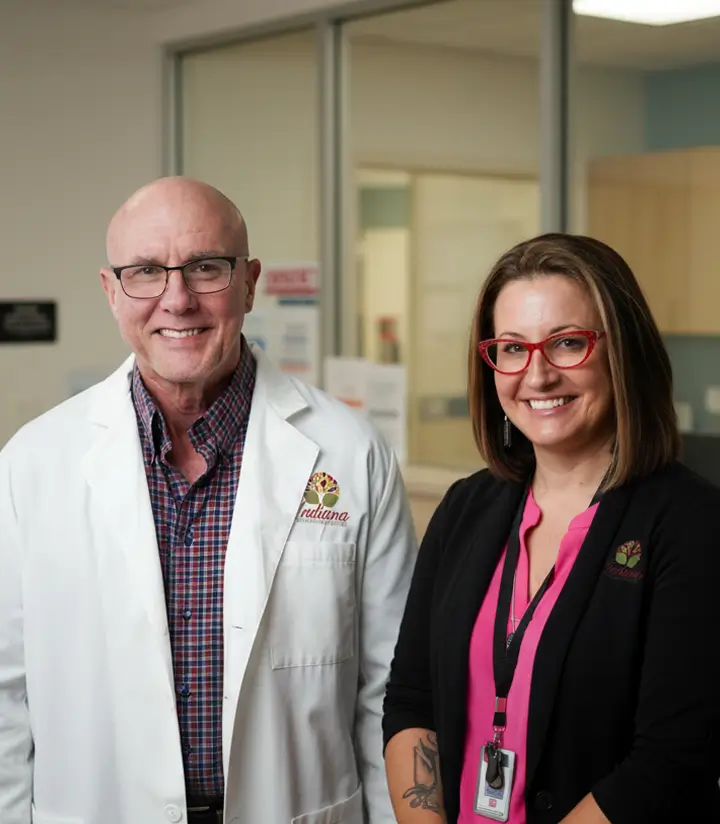Navigating Different Eating Disorder Treatment Options
Discover effective eating disorder treatment options at Indiana Center for Recovery. Get the support you need today!
In Indiana, more than 1.1 million adults live with a mental health condition ⓘ. Whether you’re in crisis or seeking ongoing support, therapy provides a clear path toward recovery.
Therapy is a focused, supportive process led by a licensed mental health professional. Sessions may take place one-on-one, in a group, or with family members.
Some approaches target immediate concerns like anxiety, trauma, or addiction, while others explore deeper patterns or underlying causes.
The goal is to create a safe environment to work through challenges and get the insight and skills to manage negative thoughts or behaviors long-term.
Therapy isn’t just for moments of crisis. With regular support, it can lead to emotional growth and a more stable, fulfilling life. Many people find that therapy helps them:
Therapy can be tailored to meet your individual needs, and there are a variety of methods to consider.
Some widely-used therapeutic approaches include:
Curious about how therapy works or which approach might be right for you or a loved one? Our therapy blog dives into the many paths to healing—covering everything from cognitive behavioral therapy and EMDR to group sessions, trauma-informed care, and more.
Learn how different therapeutic approaches work and how therapy can empower long-term recovery and emotional well-being.
Discover effective eating disorder treatment options at Indiana Center for Recovery. Get the support you need today!
Patients at the Indiana Center for Recovery can begin rebuilding their lives. Customized treatment plans, group therapy, mental health counseling, and other services are provided by the Indiana Center for Recovery.
Discover how to heal from trauma with Indiana Center for Recovery. Click here to learn effective tips and strategies.
EMDR Therapy is one of the most effective treatments for mental health disorders. Indiana Center for Recovery offers EMDR. Call today to learn more!
Get holistic care for a dual diagnosis at Indiana center for recovery. Learn about different treatment options here.
Bipolar disorder can change your mood, energy, and overall behavior. Find professional treatment from The Indiana Center For Recovery. Learn more here.
Indiana Center for Recovery provides integrated care tailored to your recovery needs. Our comprehensive services include detox, residential programs, outpatient support, and family programs.
We also have dual diagnosis treatment for individuals with co-occurring mental health disorders.

Error: Contact form not found.

 Get Answers Now
Get Answers NowYou don’t have to figure this out alone. We can guide you through your options—completely confidential and with zero commitment.
100% Private